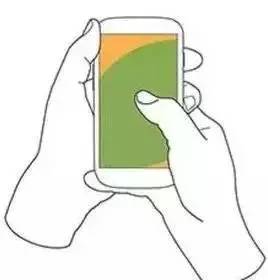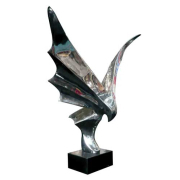斜倚在一边有可能影响你对于从物体的高度到事件的发生频率的事情的判断,Sophie Bushwick报告称。
How many Michael Jackson songs do you think became Number 1 hits? How tall do you think the Eiffel Tower is? How good is your posture? Believe it or not, how you sit or stand could affect your answers. Because a new study finds that our estimates are skewed by the position of our bodies. The work is in the journal Psychological Science. [Anita Eerland, Tulio Guadalupe and Rolf Zwaan, Leaning to the Left Makes the Eiffel Tower Seem Smaller: Posture-Modulated Thought, in press]你认为有多少首Michael Jackson的歌排点击率第一?你认为埃菲尔铁塔有多高?你认为你的姿势有多好?不管你信不信,你怎么坐着或是站着会影响你的答案。因为一个最新研究发现我们的判断会因我们的身体姿势而出现偏差。这项工作发表在“心理科学”杂志上。[Anita Eerland,Tulio Guadalupe和Rolf Zwaan的“斜靠在左边让埃菲尔铁塔看起来更小:由姿势调节的想法”]
Dutch researchers rigged a Wii Balance Board to subtly tilt left, right, or remain flat while students stood on the board and answered estimation questions. In order to prevent the students from perceiving a bias, they were told to stand up straight—and a screen informed them that they were upright even when their bodies were actually leaning to one side. When the board tilted so that the participants leaned left, their estimations were smaller than when they were standing up or leaning right.荷兰研究者们在学生站在一个Wii平衡板上并回答问题时操作这个板,使其向左右轻微地倾斜,或是保持水平。为了防止学生们察觉到这种偏移,他们告诉学生是在直立,在学生们的身体斜倚在一旁时,在前方用一个屏幕提示他们是在直立状态。当板倾斜致使参与者们向左倾斜时,他们的会比直立和右倾时将物体判断得更小。

The fact that posture affected participants’ answers indicates that the decision-making process isn’t as rational as it may feel. Amazingly enough, unconscious factors like tilting your body can also tilt your best guess.
姿势影响参与者们的判断的事实指出决策系统并不是看起来的那么理智。惊人的是,潜意识因素,比如倾斜你的身体,也可以导致你的最好的想法发生偏移。
—Sophie Bushwick—Sophie Bushwick
 爱华网
爱华网


